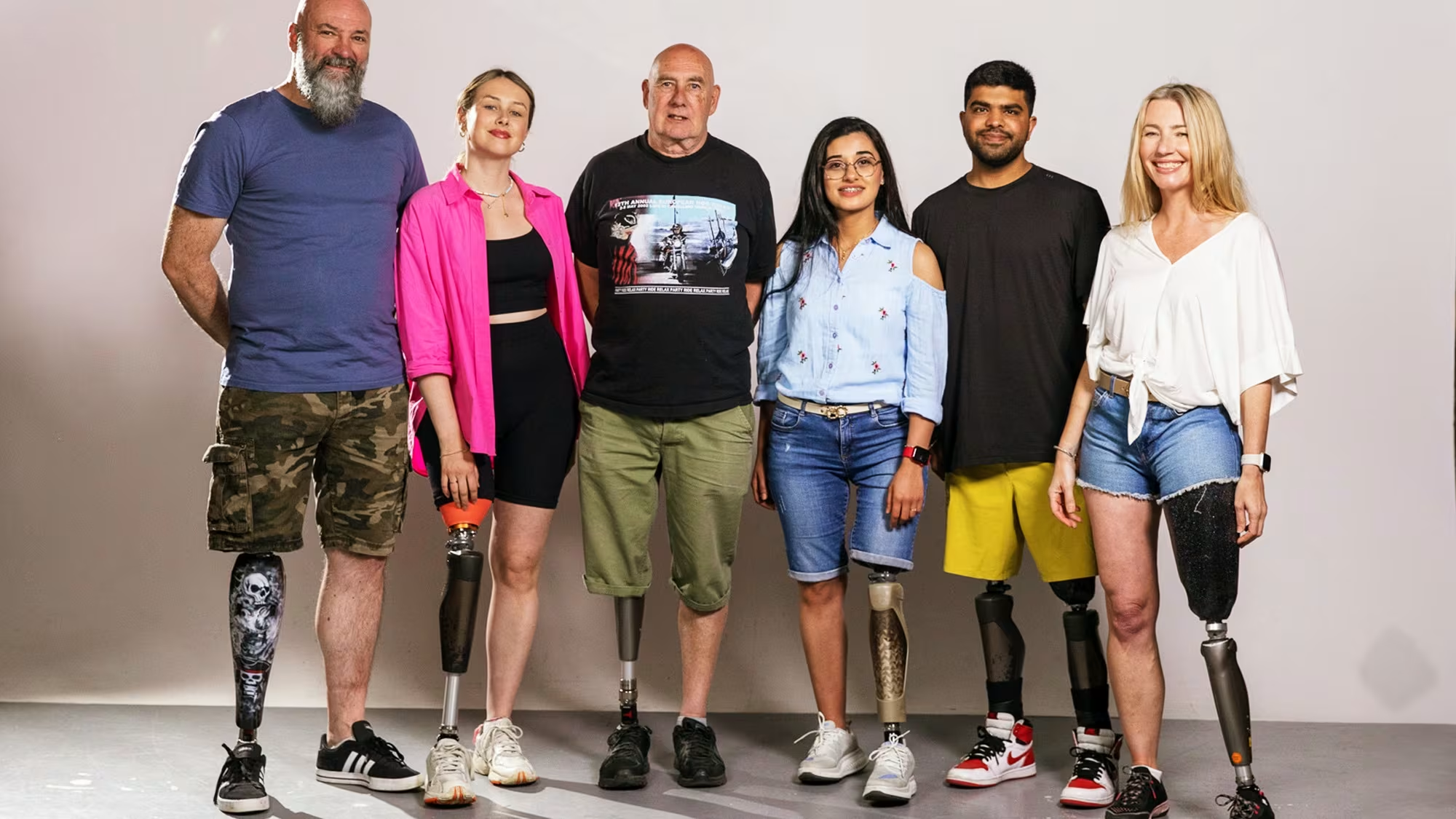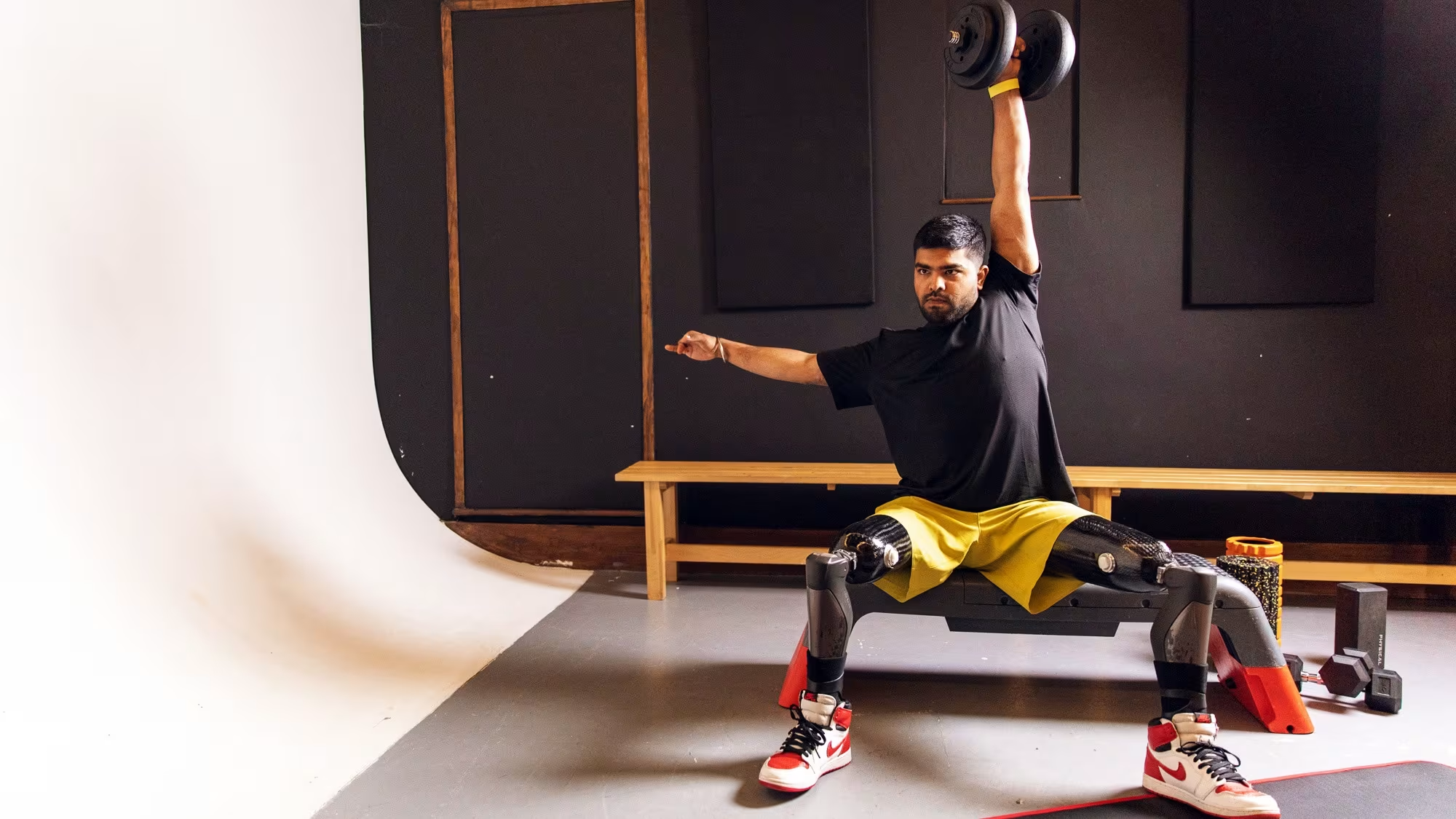


Sarah's C-Leg 4 Story
How a chance meeting gave teenage amputee the confidence to show the world her prosthetic and live her life full of adventure.
Project Youth Cancer ambassador and part time model Sarah 27, from Huddersfield radiates confidence and positivity. As an advocate for disabled people, speaking in front of hundreds of people or making television appearances it’s a far cry from the once shy self-conscious child and it’s a journey that has been 10 years in the making.
Sarah was just 16 when she was diagnosed with Osteosarcoma in her right leg. The weeks following her diagnosis were a whirlwind of doctors’ appointments and hospital visits. In the hope of saving her leg she immediately started intensive chemotherapy treatment which took a gruelling affect on her.
Just two months after her diagnosis Sarah was given the news that the tumour was too close to an artery and the only way to remove it would be to amputate her leg. “There must have been about 12 people in the room, surgeons, consultants, specialist nurses, physios; when they told me about the amputation. I just remember saying “no, I don’t want my leg amputated”. I didn’t think I could live without my leg”, reflected Sarah, “but I knew it was the only option if I wanted to live.” And so, just four months after her initial diagnoses Sarah had her right leg amputated above the knee.
“When I woke up after the surgery I immediately felt better. The tumour had taken up so much of my energy that I felt a huge sense of relief knowing it had gone. It was a powerful moment.” reflected Sarah. For the next nine months Sarah continued with her aggressive chemotherapy, her rehabilitation took a back seat while she put all her energy into beating the cancer.
“As soon as my chemo had finished I was determined to walk. I wanted to walk so well that no one would notice I had one leg.” With this goal at the forefront of her mind, Sarah worked on her physio rehabilitation every day and was soon able to resume her studies at college having mastered walking with her mechanical leg. Her return to college was challenging as she felt so different to the person she was before her amputation. “I didn’t want to be defined by my amputation, so I kept it covered up and used a cosmetic cover. I certainly didn’t want it on show!”
But a chance meeting was to change Sarah’s outlook. She was invited to a LimbPower amputee meeting. The LimbPower charity supports amputees, individuals with limb difference and their families to bridge the gap between hospital rehabilitation and community and school engagement to rebuild lives and improve physical, social and mental well-being.
During the event Sarah met hundreds of amputees who had their protheses on display. “As the day went on I realised I should be proud of what I’ve been through and who I am. I’d always feared getting my “metal out”,” the term Sarah uses for her prosthetic leg without its cosmetic cover on, “but the people I met that day completely changed how I thought.” From that day on Sarah, with the support of the people she met at the charity, found the confidence to put her prosthetic leg on display for all to see.
With her newfound confidence and active social life only her mechanical leg was holding her back from making the most of new opportunities that were coming her way, until the introduction of the NHS England MPK Policy. The policy allows above knee, through knee and hip disarticulation amputees the opportunity to be fitted with a fully funded microprocessor knee on the NHS.
Through the policy Sarah was fitted with a C-Leg 4. This microprocessor knee provides the exceptional reliability and performance a user needs to focus on what really matters — enjoying a healthy, active lifestyle. From descending stairs and ramps, to navigating uneven terrain, to walking backward, the C-Leg dynamically adapts to a wide variety of everyday situations. With an innovative design and exciting new features, the C-Leg 4 provides the next-level personalisation, and an easier, more intuitive user experience.
“I was so excited to get my new leg,” said Sarah, “and straight away I could feel the difference in the support it gave me. Living in Yorkshire means that going up and down hills is part of everyday life so to feel the C-Leg actively steadying me down slopes was a huge bonus!”
The confidence she has in her C-Leg gave Sarah the motivation to fulfil her love of travelling. “I’d always loved going on holiday before my amputation” said Sarah, “so me and my boyfriend decided to buy a campervan and travel around Europe.” They embarked on an epic European tour visiting 12 countries in 10 weeks. “I was nervous about doing it”, Sarah reflected, “I wasn’t sure how I’d be able to charge my leg, but I found a solar charging device which worked perfectly. So we just up and went! It was an amazing experience!”
Sarah is now helping other young people, who are going through a similar experience to herself, as an ambassador for Project Youth Cancer. On behalf of the charity, Sarah gives talks and makes television appearances to raise awareness. “Looking back to the shy child I was, I would never have believed I’d have the confidence to do the things I do now,” radiates Sarah.
Sarah has overcome so much in the last 10 years. What do the next 10 years hold for her? “I have plenty of things on my bucket list!” enthused Sarah, “I love horses and recently went riding so I’m looking forward to doing that more in the future. I also want to try skiing and I’ve set myself the goal of walking up Mt Snowden! I do feel nervous about trying new things, but I never regret doing them and each time I accomplish something it gives me more confidence for the next adventure!”
What’s her advice to anyone going through an amputation? “When you’re newly amputated, it feels really daunting. Don’t focus on the end goal, just take it one day at a time. One step at a time. Take every day as it comes, you might only have a little improvement every day, but you will get there. The life on the other side is so good. You can live a really fulfilling life as an amputee, if not a better life because of the people you meet and the life lessons it gives you. Keep going, find that inner strength. Speak to people, support groups, other amputees - it really helps to have someone that you can speak to who understands what you are going through.”

